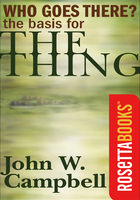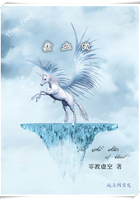The third island was soon made habitable. With cement and the big pebbles from the shingle beach, two men built him a hut, and roofed it with corrugated iron. A boat brought over a bed and table, and three chairs, with a good cupboard, and a few books. He laid in a supply of coal and paraffin and food—he wanted so little.
The house stood near the flat shingle bay where he landed, and where he pulled up his light boat. On a sunny day in August the men sailed away and left him. The sea was still and pale blue. On the horizon he saw the small mail-steamer slowly passing northwards, as if she were walking. She served the outer isles twice a week. He could row out to her if need be, in calm weather, and he could signal her from a flagstaff behind his cottage.
Half a dozen sheep still remained on the island, as company; and he had a cat to rub against his legs. While the sweet, sunny days of the northern autumn lasted, he would walk among the rocks, and over the springy turf of his small domain, always coming to the ceaseless, restless sea. He looked at every leaf, that might be different from another, and he watched the endless expansion and contraction of the water-tossed sea-weed. He had never a tree, not even a bit of heather to guard. Only the turf, and tiny turf-plants, and the sedge by the pool, the seaweed in the ocean. He was glad. He didn't want trees or bushes. They stood up like people, too assertive. His bare, low-pitched island in the pale blue sea was all he wanted.
He no longer worked at his book. The interest had gone. He liked to sit on the low elevation of his island, and see the sea; nothing but the pale, quiet sea. And to feel his mind turn soft and hazy, like the hazy ocean. Sometimes, like a mirage, he would see the shadow of land rise hovering to northwards. It was a big island beyond. But quite without substance.
He was soon almost startled when he perceived the steamer on the near horizon, and his heart contracted with fear, lest it were going to pause and molest him. Anxiously he watched it go, and not till it was out of sight did he feel truly relieved, himself again. The tension of waiting for human approach was cruel. He did not want to be approached. He did not want to hear voices. He was shocked by the sound of his own voice, if he inadvertently spoke to his cat. He rebuked himself for having broken the great silence. And he was irritated when his cat would look up at him and mew faintly, plaintively. He frowned at her. And she knew. She was becoming wild, lurking in the rocks, perhaps fishing.
But what he disliked most was when one of the lumps of sheep opened its mouth and baa-ed its hoarse, raucous baa. He watched it, and it looked to him hideous and gross. He came to dislike the sheep very much.
He wanted only to hear the whispering sound of the sea, and the sharp cries of the gulls, cries that came out of another world to him. And best of all, the great silence.
He decided to get rid of the sheep, when the boat came. They were accustomed to him now, and stood and stared at him with yellow or colourless eyes, in an insolence that was almost cold ridicule. There was a suggestion of cold indecency about them. He disliked them very much. And when they jumped with staccato jumps off the rocks, and their hoofs made the dry, sharp hit, and the fleece flopped on their square backs—he found them repulsive, degrading.
The fine weather passed, and it rained all day. He lay a great deal on his bed, listening to the water trickling from his roof into the zinc water-butt, looking through the open door at the rain, the dark rocks, the hidden sea. Many gulls were on the island now: many sea-birds of all sorts. It was another world of life. Many of the birds he had never seen before. His old impulse came over him, to send for a book, to know their names. In a flicker of the old passion, to know the name of everything he saw, he even decided to row out to the steamer. The names of these birds! he must know their names, otherwise he had not got them, they were not quite alive to him.
But the desire left him, and he merely watched the birds as they wheeled or walked around him, watched them vaguely, without discrimination. All interest had left him. Only there was one gull, a big handsome fellow, who would walk back and forth, back and forth in front of the open door of the cabin, as if he had some mission there. He was big, and pearl-grey, and his roundnesses were as smooth and lovely as a pearl. Only the folded wings had shut black pinions, and on the closed black feathers were three very distinct white dots, making a pattern. The islander wondered very much, why this bit of trimming on the bird out of the far, cold seas. And as the gull walked back and forth, back and forth in front of the cabin, strutting on pale-dusky gold feet, holding up his pale yellow beak, that was curved at the tip, with curious alien importance, the man wondered over him. He was portentous, he had a meaning.
Then the bird came no more. The island, which had been full of sea-birds, the flash of wings, the sound and cut of wings and sharp eerie cries in the air, began to be deserted again. No longer they sat like living eggs on the rocks and turf, moving their heads, but scarcely rising into flight round his feet. No longer they ran across the turf among the sheep, and lifted themselves upon low wings. The host had gone. But some remained, always.
The days shortened, and the world grew eerie. One day the boat came: as if suddenly, swooping down. The islander found it a violation. It was torture to talk to those two men, in their homely clumsy clothes. The air of familiarity around them was very repugnant to him. Himself, he was neatly dressed, his cabin was neat and tidy. He resented any intrusion, the clumsy homeliness, the heavy-footedness of the two fishermen was really repulsive to him.
The letters they had brought, he left lying unopened in a little box. In one of them was his money. But he could not bear to open even that one. Any kind of contact was repulsive to him. Even to read his name on an envelope. He hid the letters away.
And the hustle and horror of getting the sheep caught and tied and put in the ship made him loathe with profound repulsion the whole of the animal creation. What repulsive god invented animals, and evil-smelling men? To his nostrils, the fishermen and the sheep alike smelled foul; an uncleanness on the fresh earth.
He was still nerve-wracked and tortured when the ship at last lifted sail and was drawing away, over the still sea. And sometimes days after, he would start with repulsion, thinking he heard the munching of sheep.
The dark days of winter drew on. Sometimes there was no real day at all. He felt ill, as if he were dissolving, as if dissolution had already set in inside him. Everything was twilight, outside, and in his mind and soul. Once, when he went to the door, he saw black heads of men swimming in his bay. For some moments he swooned unconscious. It was the shock, the horror of unexpected human approach. The horror in the twilight! And not till the shock had undermined him and left him disembodied, did he realize that the black heads were the heads of seals swimming in. A sick relief came over him. But he was barely conscious, after the shock. Later on, he sat and wept with gratitude, because they were not men. But he never realized that he wept. He was too dim. Like some strange, ethereal animal, he no longer realized what he was doing.
Only he still derived his single satisfaction from being alone, absolutely alone, with the space soaking into him. The grey sea alone, and the footing of his sea-washed island. No other contact. Nothing human to bring its horror into contact with him. Only space, damp, twilit, sea-washed space! This was the bread of his soul.
For this reason, he was most glad when there was a storm, or when the sea was high. Then nothing could get at him. Nothing could come through to him from the outer world. True, the terrific violence of the wind made him suffer badly. At the same time, it swept the world utterly out of existence for him. He always liked the sea to be heavily rolling and tearing. Then no boat could get at him. It was like eternal ramparts round his island.
He kept no track of time, and no longer thought of opening a book. The print, the printed letters, so like the depravity of speech, looked obscene. He tore the brass label from his paraffin stove. He obliterated any bit of lettering in his cabin.
His cat had disappeared. He was rather glad. He shivered at her thin, obtrusive call. She had lived in the coal shed. And each morning he had put her a dish of porridge, the same as he ate. He washed her saucer with repulsion. He did not like her writhing about. But he fed her scrupulously. Then one day she did not come for her porridge: she always mewed for it. She did not come again.
He prowled about his island in the rain, in a big oil-skin coat, not knowing what he was looking at, nor what he went out to see. Time had ceased to pass. He stood for long spaces, gazing from a white, sharp face, with those keen, far-off blue eyes of his, gazing fiercely and almost cruelly at the dark sea under the dark sky. And if he saw the labouring sail of a fishing boat away on the cold waters, a strange malevolent anger passed over his features.
Sometimes he was ill. He knew he was ill, because he staggered as he walked, and easily fell down. Then he paused to think what it was. And he went to his stores and took out dried milk and malt, and ate that. Then he forgot again. He ceased to register his own feelings.
The days were beginning to lengthen. All winter the weather had been comparatively mild, but with much rain, much rain. He had forgotten the sun. Suddenly, however, the air was very cold, and he began to shiver. A fear came over him. The sky was level and grey, and never a star appeared at night. It was very cold. More birds began to arrive. The island was freezing. With trembling hands he made a fire in his grate. The cold frightened him.
And now it continued, day after day, a dull, deathly cold. Occasional crumblings of snow were in the air. The days were greyly longer, but no change in the cold. Frozen grey daylight. The birds passed away, flying away. Some he saw lying frozen. It was as if all life were drawing away, contracting away from the north, contracting southwards. "Soon", he said to himself, "it will all be gone, and in all these regions nothing will be alive." He felt a cruel satisfaction in the thought.
Then one night there seemed to be a relief: he slept better, did not tremble half awake, and writhe so much, half-conscious. He had become so used to the quaking and writhing of his body, he hardly noticed it. But when for once it slept deep, he noticed that.
He awoke in the morning to a curious whiteness. His window was muffled. It had snowed. He got up and opened his door, and shuddered. Ugh! how cold! All white, with a dark leaden sea, and black rocks curiously speckled with white. The foam was no longer pure. It seemed dirty. And the sea ate at the whiteness of the corpse-like land. Crumbles of snow were silting down the dead air.
On the ground the snow was a foot deep, white and smooth and soft, windless. He took a shovel to clear round his house and shed. The pallor of morning darkened. There was a strange rumbling of far-off thunder, in the frozen air, and through the newly-falling snow, a dim flash of lightning. Snow now fell steadily down, in the motionless obscurity.
He went out for a few minutes. But it was difficult. He stumbled and fell in the snow, which burned his face. Weak, faint, he toiled home. And when he recovered, he took the trouble to make hot milk.
It snowed all the time. In the afternoon again there was a muffled rumbling of thunder, and flashes of lightning blinking reddish through the falling snow. Uneasy, he went to bed and lay staring fixedly at nothing.
Morning seemed never to come. An eternity long he lay and waited for one alleviating pallor on the night. And at last it seemed the air was paler. His house was a cell faintly illuminated with white light. He realized the snow was walled outside his window. He got up, in the dead cold. When he opened his door, the motionless snow stopped him in a wall as high as his breast. Looking over the top of it, he felt the dead wind slowly driving, saw the snow-powder lift and travel like a funeral train. The blackish sea churned and champed, seeming to bite at the snow, impotent. The sky was grey, but luminous.
He began to work in a frenzy, to get at his boat. If he was to be shut in, it must be by his own choice, not by the mechanical power of the elements. He must get to the sea. He must be able to get at his boat.
But he was weak, and at times the snow overcame him. It fell on him, and he lay buried and lifeless. Yet every time, he struggled alive before it was too late, and fell upon the snow with the energy of fever. Exhausted, he would not give in. He crept indoors and made coffee and bacon. Long since he had cooked so much. Then he went at the snow once more. He must conquer the snow, this new, white brute force which had accumulated against him.
He worked in the awful, dead wind, pushing the snow aside, pressing it with his shovel. It was cold, freezing hard in the wind, even when the sun came out for a while, and showed him his white, lifeless surroundings, the black sea rolling sullen, flecked with dull spume, away to the horizons. Yet the sun had power on his face. It was March.
He reached the boat. He pushed the snow away, then sat down under the lee of the boat, looking at the sea, which nearly swirled to his feet, in the high tide. Curiously natural the pebbles looked, in a world gone all uncanny. The sun shone no more. Snow was falling in hard crumbs, that vanished as if by miracle as they touched the hard blackness of the sea. Hoarse waves rang in the shingle, rushing up at the snow. The wet rocks were brutally black. And all the time the myriad swooping crumbs of snow, demonish, touched the dark sea and disappeared.
During the night there was a great storm. It seemed to him he could hear the vast mass of the snow striking all the world with a ceaseless thud; and over it all, the wind roared in strange hollow volleys, in between which came a jump of blindfold lightning, then the low roll of thunder heavier than the wind. When at last the dawn faintly discoloured the dark, the storm had more or less subsided, but a steady wind drove on. The snow was up to the top of his door.
Sullenly, he worked to dig himself out. And he managed, through sheer persistency, to get out. He was in the tail of a great drift, many feet high. When he got through, the frozen snow was not more than two feet deep. But his island was gone. Its shape was all changed, great heaping white hills rose where no hills had been, inaccessible, and they fumed like volcanoes, but with snow powder. He was sickened and overcome.
His boat was in another, smaller drift. But he had not the strength to clear it. He looked at it helplessly. The shovel slipped from his hands, and he sank in the snow, to forget. In the snow itself, the sea resounded.
Something brought him to. He crept to his house. He was almost without feeling. Yet he managed to warm himself, just that part of him which leaned in snow-sleep over the coal fire. Then again, he made hot milk. After which, carefully, he built up the fire.
The wind dropped. Was it night again? In the silence, it seemed he could hear the panther-like dropping of infinite snow. Thunder rumbled nearer, crackled quick after the bleared reddened lightning. He lay in bed in a kind of stupor. The elements! The elements! His mind repeated the word dumbly. You can't win against the elements.
How long it went on, he never knew. Once, like a wraith, he got out, and climbed to the top of a white hill on his unrecognizable island. The sun was hot. "It is summer", he said to himself, "and the time of leaves." He looked stupidly over the whiteness of his foreign island, over the waste of the lifeless sea. He pretended to imagine he saw the wink of a sail. Because he knew too well there would never again be a sail on that stark sea.
As he looked, the sky mysteriously darkened and chilled. From far off came the mutter of the unsatisfied thunder, and he knew it was the signal of the snow rolling over the sea. He turned, and felt its breath on him.















